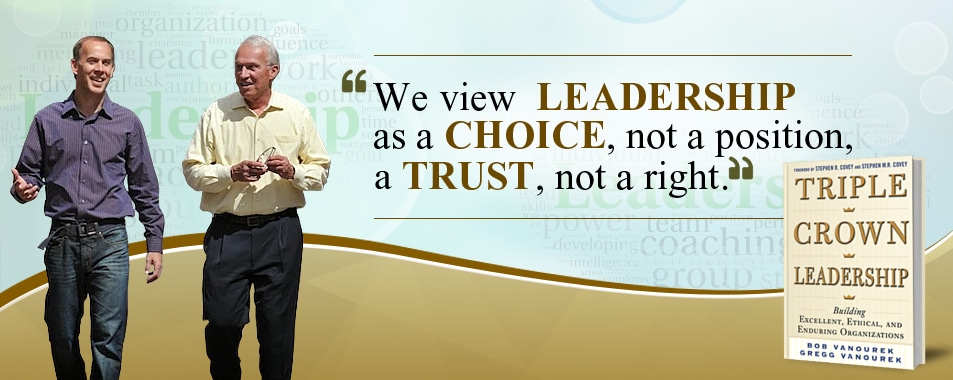Article Summary:
Knowing why you want to lead is essential. If your motive to lead is selfish, you’ll fail. Your ego is a leadership toxin.
+++
Why do you want to lead? It’s important to know that—important to your future and to those you lead.
Leading Is a Choice
You may get thrust into a position of authority when a vacuum exists. Most times, though, leadership is a choice you make. If offered, you can agree to step into a position of authority. You can choose.
You can also choose to lead without a title or formal authority. Knowing why you want to lead is important when you have a choice to make.
Leadership is hard. It involves motivating people and driving change—guiding people to work together toward a better future. Many people will resist such attempts to drive change.
Leading may drain you emotionally and physically. It may affect your health. Leadership can also be wonderfully gratifying if done for the right reasons.
There are worthy motives to lead and questionable motives to lead.
Questionable Motives to Lead
Questionable motives to lead can be dangerous to you and others.
Some people just want to be a boss, getting ahead of others, and telling others what to do. They want to be in charge, in control, pulling the levers of change. They may like the power of being able to reward and punish people. Their mantra is often “my way or the highway.”
Some people want to lead for the status, compensation packages, and perquisites often given to executives. They’re seduced by material benefits.
Some people want the prestige and accolades that can come with leading. They crave being the center of attention to validate them. And they revel in the praise they receive.
Do any of these motives apply to you? If so, be warned.
These are leadership derailers. They’re temptations that will likely harm you and the people who work for you. You may have authority over your team, but you won’t have their hearts, trust, or commitment. They won’t give you their all, and they won’t trust you.

Leadership Derailers Assessment
Take this assessment to identify what’s inhibiting your leadership effectiveness. It will help you develop self-awareness and identify ways to improve your leadership.
People aren’t blind. They will likely see that you’re in it for yourself. They’ll see the power and prestige you crave or your need for recognition and praise.
With such questionable motives, your days as a leader will likely be numbered. You’ll fail to achieve what you need to because your followers will comply with you only begrudgingly.
Meanwhile, you will also have stifled their ability to grow, thrive, and reach their potential, because they’ll be shut down by your selfish motives.
Worthy Motives to Lead
On the flipside, there are noble and honorable reasons to want to lead.
You may have a passion for a cause or a unique talent. If your passion or talent is recognized by the people above you in your organization, they may ask you to take on a position of greater authority or lead on a specific project.
More importantly, you’ll have the trust and support of those you lead. They will commit to follow you. Your chances for success will be much higher because of their enthusiastic support.
Worthy motives to lead involve being focused on the people you’ll lead, not yourself. The best leadership is not ego-driven.
Worthy leadership is about helping people get to a better place—improving their circumstances, unleashing their capabilities, and helping them develop their own leadership skills. Great leadership is a group performance, not a solo act. It unleashes others to develop agency, take initiative, and lead when they have the capabilities and desire to do so.
Worthy leadership truly cares about the people being led. It doesn’t see them as means to satisfy one’s own ego. It sees them as worthy people in and of themselves. Such leadership serves others. (For more on this, see our series of articles on servant leadership.)

Personal Values Exercise
Complete this exercise to identify your personal values. It will help you develop self-awareness, including clarity about what’s most important to you in life and work, and serve as a safe harbor for you to return to when things are tough.
Summary
Knowing why you want to lead is essential. If your motive to lead is selfish, you’ll fail.
Your ego is a leadership toxin. If your motive to lead is worthy, as when the focus is on making a difference or serving others, it will benefit all involved.
Reflection Questions
- Why do you want to lead?
- Is it all about you?
- If so, how can you reframe it so the focus is on service and contributions to others?
Tools for You
- Leadership Derailers Assessment to help you identify what’s inhibiting your leadership effectiveness
- Personal Values Exercise to help you determine and clarify what’s most important to you
- Traps Test to help you identify what’s inhibiting your happiness and quality of life
Related Articles
- “Unlock the Power of Purpose in Your Work and Leadership“
- “The Leadership Reset You Need for the New Year“
- Thomas Kolditz, “Why You Lead Determines How Well You Lead,” Harvard Business Review Blog, July 2014
Postscript: Quotations on Motivations for Leading
- “Our study demonstrates that those who lead primarily from values-based motivations, which are inherently internal, outperform those who lead with additional instrumental outcomes and rewards.” -Thomas Kolditz, “Why You Lead Determines How Well You Lead,” Harvard Business Review Blog, July 2014
- “Ego can’t sleep. It micro-manages. It disempowers. It reduces our capability. It excels in control.” -Robert Greenleaf, author
- “Leadership is about being of service to others, not being served by others.”-Catherine Plano, author
- “Leadership … is about leaving your ego at the door.” -Robin Sharma
- “The best leaders are not driven by ego or personal agendas…. Ego clouds and disrupts everything.” -Jocko Willink, former Navy Seal, author and consultant
- “Leadership is not wielding authority—it’s empowering people.” -Becky Brodin, author
- “My ego is not my amigo.” -Chuck Wachendorfer, executive coach and speaker
- “The more you can have control over your ego rather than let it run amuck, the more successful you’ll be in all areas of life.” -Roy T. Bennett
- “Most people are in love with their particular life drama…. The ego runs their life. They have their whole sense of self invested in it.” -Eckhart Tolle, The Power of Now

Triple Crown Leadership Newsletter
Join our community. Sign up now and get our monthly inspirations (new articles, announcements, opportunities, resources, and more). Welcome!
+++++++++++++++++++++++
Gregg Vanourek and Bob Vanourek (son and father) are co-authors of Triple Crown Leadership: Building Excellent, Ethical, and Enduring Organizations, a winner of the International Book Awards. Check out their Leadership Derailers Assessment or get their monthly newsletter. If you found value in this, please forward it to a friend. Every little bit helps!



2 thoughts on “Why Do You Want to Lead?”
Great read. I’ve found that oftentimes some of the best leaders are those that are most dedicated to a particular mission or vision, have a strong sense of direction, and are willing to do what it takes to get there—which to a large degree means making sure everyone on the team is aligned and on board, and works towards the same goal.
Thanks for your thoughtful comments and insightful observations about effective leadership.